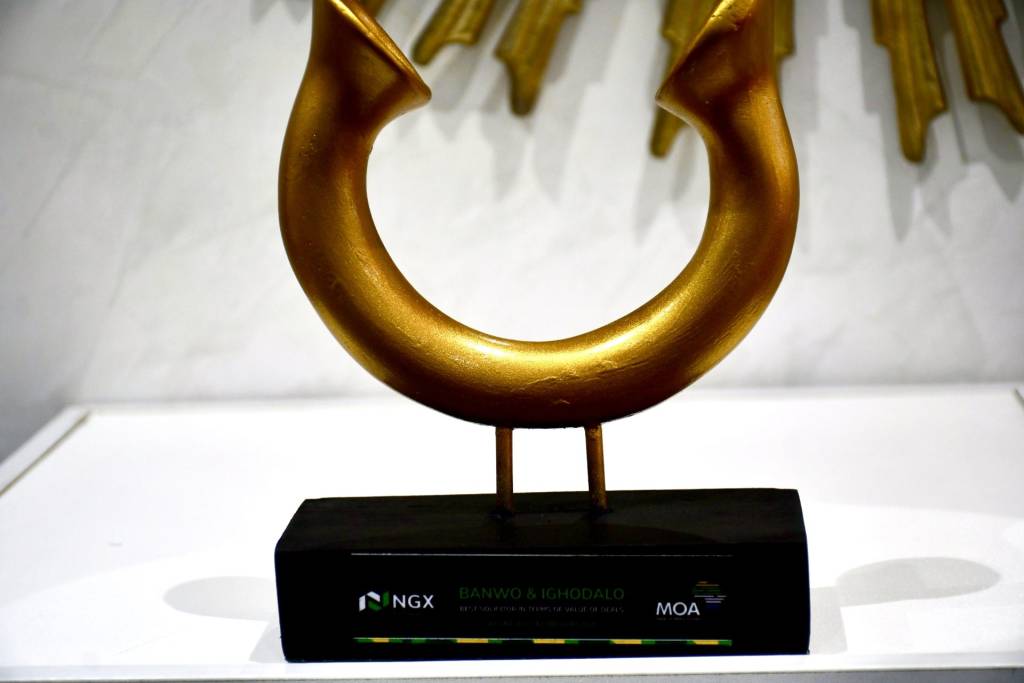
On April 17, 2025, the Central Bank of Nigeria (CBN), through a letter referenced CMD/DIR/PUB/LTI/001/001, reminded all banks, payment service banks and other financial institutions in Nigeria (“financial institutions”) of their ongoing obligations to comply with applicable local, regional and international sanctions regimes, or face regulatory sanctions and enforcement action.
Sanctions regimes refer to the collection of legal and regulatory instruments designed to tackle illicit financial flows, including money laundering, terrorism financing, and the financing of proliferation of weapons of mass destruction (“proliferation financing”). Financial institutions are obliged to implement measures to ensure compliance with all instruments of sanction against persons and entities that contravene established Anti-Money Laundering (AML), Combating the Financing of Terrorism (CFT), and Countering Proliferation Financing (CPF) regulations and laws. These instruments include:
• The United Nations Consolidated Sanctions List.
• The Nigerian Sanctions List.
• Terrorism (Prevention and Prohibition) Act of 2022.
• Regulation for the Implementation of Targeted Financial Sanctions Related to Terrorism, Terrorism Financing and Other Related Matters, 2022.
• CBN Guidelines on Targeted Financial Sanctions Related to Terrorism and Terrorism Financing, 2022.
• CBN AML/CFT/CPF Regulations, 2022.
• Other relevant and applicable regional or international sanctions lists.
This article examines Nigeria’s sanctions regimes in light of the CBN letter, and situates them within the context of international cooperation against illicit financial flows and the growing expectations of financial institutions to be active players in the global fight against financial crimes. At a time when the country is making concerted efforts towards tackling terrorist activities, suspicious fund flows and transactions by designated persons remain a compliance red-flag and pose serious regulatory risks to financial institutions. Designated persons are individuals or entities connected with money laundering, terrorism financing and proliferation financing, and that are subject to targeted financial sanctions under the “United Nations Security Council Resolutions on Targeted Financial Sanctions”, as enforced by UN member nations through their security and intelligence agencies and financial system authorities.

Key compliance obligations of financial institutions
Financial institutions must develop and maintain robust compliance frameworks that enables them to:
• monitor, promptly identify and respond to updates or changes across all applicable sanctions lists.
• prevent use of their platforms for transactions involving designated individuals or entities.
• conduct real-time screening of customers, transactions, and beneficial owners.
• file appropriate reports with the Nigerian Financial Intelligence Unit (NFIU) and notify the CBN where necessary.
Legal and regulatory framework
Section 66 of the Banks and Other Financial Institutions Act of 2020 (BOFIA) mandates financial institutions to comply with AML and CFT obligations under subsisting laws, regulations, and regulatory directives; as well as implement internal controls that prevent transactions linked to criminal activities, money laundering or terrorism.
In the same vein, the BOFIA empowers the CBN Governor to issue regulations, guidelines and policies from time to time, in fighting money laundering and combating terrorism financing, in line with international best practices and standards. Furthermore, the CBN Governor is required to collaborate with similarly minded bodies in other countries for the purposes of sharing information and relevant data in aid of the fight against money laundering and terrorism financing.
The Terrorism (Prevention and Prohibition) Act of 2022 (“Terrorism Act”) establishes a legal framework for implementing targeted financial sanctions and international resolutions against money laundering, terrorism financing, and proliferation financing.
The Terrorism Act provides for the establishment of a body known as the Nigeria Sanctions Committee. The Nigeria Sanctions Committee, among other functions, has the responsibility for formulating and providing general policy guidelines on designation of persons and entities for the purpose of applying the Targeted Financial Sanctions Related to Terrorism and Terrorism Financing, developed by the United Nations’ Security Council based on its resolutions on terrorism financing and proliferation financing. The United Nations publishes and maintains a list of designated persons and entities called the UN Consolidated Sanctions List.
The Attorney-General of the Federation (“AGF”) is a member of the Nigeria Sanctions Committee and is also conferred with powers under section 95 to issue regulations for the general implementation of the Terrorism Act. Further to this, the AGF issued the Regulation for the Implementation of Targeted Financial Sanctions Related to Terrorism, Terrorism Financing and Other Related Matters, 2022.The Regulation provides general guidance to the Nigeria Sanctions Committee regarding its mandates under the Terrorism Act and implementation of international sanctions regimes including the UN’s Sanctions. It also provides general guidance to financial institutions and other persons and entities on compliance with the provisions of the Terrorism Act, among others.
The Nigeria Sanctions Committee has the primary responsibility for recommending the designation of individuals and entities it reasonably suspects to have been involved in any of the prohibited activities specified in the Terrorism Act. Further to this, Section 50 of the Terrorism Act imposes a duty on the Nigeria Sanctions Committee to establish the Nigeria Sanctions List, where all designations made under the law are to be published and periodically updated.
According to Section 52 of the Terrorism Act, the designation of a person or entity by the United Nations Security Council or its Committees, has immediate application in Nigeria and continues in effect until its expiration or revocation by the designating authority.
To this effect, Section 54 of the Terrorism Act imposes an obligation on all natural and legal persons in Nigeria, including financial institutions, designated non-financial business and professions, and other entities in Nigeria to take immediate appropriate action necessary for identifying and freezing all funds, assets, and other economic resources linked to a designated person or entity, following publication of the UN Consolidated Sanctions List and the Nigeria Sanctions List.
Furthermore, sector regulators, such as CBN, are required under Section 54 of the Terrorism Act to provide clear guidance to entities under their regulatory purview on their obligations under the law, as well as impose administrative sanctions against any erring entity. In line with the foregoing, the CBN, as a sector regulator, issued the CBN AML/CFT/CPF Regulations, 2022 and CBN Guidelines on Targeted Financial Sanctions Related to Terrorism and Terrorism Financing, 2022 as compliance framework for financial institutions.

International cooperation
As a member state of the United Nations, Nigeria is bound by international mandates to maintain peace and security as enunciated under the Charter of the United Nations. Terrorism financing and proliferation financing compromise international peace and security. Thus, UN member nations are under obligation to support international cooperation against illicit financial flows. This includes ratifying and implementing the United Nations Security Council Resolutions (“UNSCRs”) on Targeted Financial Sanctions.
Apart from the UNSCRs, the Financial Action Task Force (“FATF”), a global money laundering and terrorist financing watchdog, represents an effective international cooperation against illicit financial flows fueling crime and terrorism. The FATF sets and promotes a comprehensive and consistent framework of recommendations (“FATF Standards”), which countries are required to implement through measures adapted to their specific circumstances and unique legal systems, to combat money laundering, terrorism financing, and proliferation financing.
Nigeria is a member of the FATF-styled regional body, the Inter Governmental Action Group against Money Laundering in West Africa (“GIABA”), and is required to implement the FATF Standards. Thus, the CBN recognizes all guidance documents, advisory notes, compliance memoranda, and sanctions lists published by either the FATF or GIABA as enforceable compliance obligations.

Compliance imperatives for financial institutions
The financial system holds the platforms for the exchange of funds and credit and is therefore central to the success of the implementation of any law or policy designed to rid the economy of illicit financial flows. As the global crusade against terrorism financing and proliferation financing heightens, domestic, international and regional collaborations are expected to increase, leading to more stringent regulations for financial institutions around the world.
In Nigeria, the CBN is expected to continue to tighten its regulatory and supervisory oversight on financial institutions, through constant review of the AML/CFT/CPF regime, introduction of stiffer penalties for non-compliance, and adoption of modern and digital technology to improve supervision and drive compliance by regulated entities.
In furtherance of this resolve, and in recognition of the high level of digitalization within the financial system and rapid emergence of innovative products, the CBN, on May 20, 2025, released an exposure draft of a set of standards called “Baseline Standards for Automated Anti-Money Laundering (AML) Solutions.” The draft standards are aimed at promoting operational efficiency and regulatory compliance with the AML/CFT/CPF requirements by financial institutions in Nigeria and is developed in line with global best practices and international regulatory frameworks, including FATF Standards. When finalized, the standards are expected to further tighten the regulatory landscape, by encouraging the adoption of emerging technologies to enhance the detection and reporting of suspicious transactions in real time.
Overall, the tightening AML/CFT/CPF regulatory and compliance regimes signal potential increase in operational and reputational risks for financial institutions, especially entities without an adequate compliance mechanism in place. In view of the wide sanctions and penalties for noncompliance, it is imperative for financial institutions not only to have a dynamic compliance department, but also to organize periodic staff training, as well as stay at the forefront of relevant international regulatory developments by constantly seeking appropriate professional legal advice on their compliance obligations.
DISCLAIMER: This article is only intended to provide general information on the subject matter and does not by itself create a client/attorney relationship between readers and our Law Firm or serve as legal advice. We are available to provide specialist legal advice on the readers’ specific circumstances when they arise.











